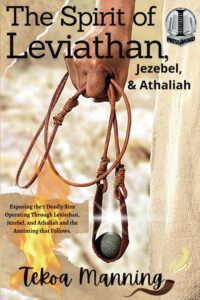“Now, a certain man had been an invalid there for thirty-eight years. Seeing him lying there and knowing he had been that way a long time, Yeshua said to him, “Do you want to get well?”
“DO YOU WANT TO GET WELL?” is a bad translation.
Don’t most people besides hypochondriacs want to get well? Don’t you want to get well, well with your soul, well. Stay with me, you might already be on the right track.
The word “well” means refu’ah, it is complete wholeness. In Hebrew, “Do you want to have refu’ah?”
We all long for complete wholeness. That is something I never knew existed until I became deathly sick. I never knew a person could have great peace in the midst of trials or that His Son wanted to speak to me and heal me from trauma, rejection, and years of junk, including my identity. The season of Elul has much to do with our identity issues. While suffering is something most people do not want to deal with, it is something we are told we will have to do as Believers in Messiah.
“Therefore, since Christ suffered in his body, arm yourselves also with the same attitude, because whoever suffers in the body is done with sin” (I Peter 4:1).
Let’s stop here and meditate on what it may look like to “ARM” ourselves. It has obvious military undertones. This walk, at times, is a battle. Be armed. Be ready. Be of sound mind. Suffering is part of our walk. However, when many go through suffering, they tend to blame this on satan and cannot see at times clearly what is actually going on and also why a deeper work is happening in our person. In my book The Spirit of Leviathan, I use a person in a casket as an example of our flesh man getting under control.
“We pick up our cross and follow our Messiah. After we wait for our redemption—in agony, day after day and year after year, with no end in sight, like Joseph in prison and David running through the hills–we finally give up and die. It is then, at that moment, that the Holy One moves. We die to any kingly positions. We die to think we can fight our own battles. We die to fool’s gold and earthly crowns and building our own kingdoms. We die to being right, correct, and smarter than others. We die to flesh. We die to rejection and any hanging onto our brothers throwing us in a pit, spitting on us, hunting us like a flea–we die. Kick a dead person; they will not rouse up to kick back. Mock them in the casket; they will not defend themselves” (The Spirit of Leviathan, Jezebel, and Athaliah)

Paul states in Galatians that he has been marked by his suffering: “From now on let no one cause me trouble, for I bear on my body the marks of Jesus” (Gal. 6:17)
In 2nd Corinthians, he takes this a step further and even expresses the higher suffering that happens to those who hold upper-level roles in the body such as apostles:
We are hard-pressed on every side, yet not crushed; we are perplexed, but not in despair; persecuted, but not forsaken; struck down, but not destroyed—always carrying about in the body the dying of the Lord Jesus, that the life of Jesus also may be manifested in our body. For we who live are always delivered to death for Jesus’ sake, that the life of Jesus also may be manifested in our mortal flesh. So then death is working in us, but life in you” (II Cor. 4:9-12).
Do you feel as if you have been delivered to death? Does it feel like death is working in you? Once death has done its complete work, life will spring forth.
In the world of physical health issues, it seems like there’s always one or two persons we meet who have never even had a common cold. Some we encounter never mention any struggles, no eviction notices, no addictions, health issues, no issues with family or relationships or on their job. They state they had a perfect childhood, and that they have a perfect marriage. They proclaim that they are blessed and highly favored, and we are, but I’m here to tell you they are liars or walking on a slippery slope (read Psalm 73).
Why do we hide our sorrows?
Who said suffering is bad? Paul and Yeshua said it was required! Pick up your cross and follow me.
But whatever was gain to me I count as loss for the sake of Christ. More than that, I count all things as loss compared to the surpassing excellence of knowing Christ Jesus my Lord, for whom I have lost all things. I consider them rubbish, that I may gain Christ and be found in Him, not having my own righteousness from the law, but that which is through faith in Christ, the righteousness from God on the basis of faith.
I want to know Christ and the power of His resurrection and the fellowship of His sufferings, being conformed to Him in His death, and so, somehow, to attain to the resurrection from the dead. (Philp. 3:7-11)
What’s refreshing is when people actually feel safe enough to open up and let you know their lives are far from perfect. They are suffering! There health is far from perfect. They had a phone call that woke them up in the night. They’ve lost a child. They are battling addiction. They are battling depression. Take time to listen to these folks closely, they often make good friends. God’s prophets were all suicidal at one point and always suffering.
Have you ever just sat with a person in their suffering? Just sat there like Job’s friends did the first week. Yes, we don’t even have to say anything. The person does not even have to know your sitting shiva with them.
Today a dear friend sent a video to me. She was out kayaking on the lake by her house and she said she took me with her. She also said earlier that day that she had been trying on my shoes. Sitting and trying to feel what I’m going through. What a friend!
We often equate that those closest to the Messiah would have wealth, be healthy, be favored, and live in blessings. Yet all the 12 died cruel deaths penniless. We are much more than our bodies that are wasting away like everyone’s will, regardless of a six-pack and gym card. The healthy, too, wilt like a flower. No one’s getting out alive.
Physician heal thyself! They chanted. If you are the Messiah, save yourself. But the Lamb of Yahweh knew that death was the key to life.
Truly, truly, I tell you, unless a kernel of wheat falls to the ground and dies, it remains only a seed; but if it dies, it bears much fruit.
John 12:24.
The most beautiful prayers are often said in silence. A gentle hold of a hand. A lingering warm hug. A gift was sent for no reason with no card. A friend who doesn’t have to say a word. Listen to the sound of silence. It can be deafening, echoing off walls like the strum of an electric guitar. Silence can try to swallow us up, but not when it’s in a space of love. Not when it’s in a place of peace. Not when we have sat with silence and not tried to run. Not when the Spirit hovers over you as you sit still in the tranquility of knowing, one way or another, it will all work out.
Why does love wax colder?
When knowledge gets so puffed up, and our remedy is information, without a proper diagnosis, we fail at being servants of the Messiah.
But I, when they were sick—
I wore sackcloth;
I afflicted myself with fasting;
I prayed with head bowed on my chest.
14 I went about as though I grieved for my friend or my brother;
as one who laments his mother,
I bowed down in mourning.
15 But at my stumbling they rejoiced and gathered;
they gathered together against me;
wretches whom I did not know
tore at me without ceasing;
16 like profane mockers at a feast,
they gnash at me with their teeth.
17 How long, O Lord, will you look on?
Messiah is looking on. If you long to learn more about the Messiah and his healing ministry, it’s deeply layered. It’s like a weavers beam.
You WORM, Yacov/Jacob.
Do not fear, O worm of Jacob,
O few men of Israel.
I will help you,” declares the LORD.
“Your Redeemer is the Holy One of Israel.
Isaiah 41:14.
The lowly worm is interesting. I’m ending this with a passage concerning worms and our Messiah from Got Questions Biblical study website:
It’s fascinating to look at the Hebrew word translated “worm” in Isaih 41:14. In Hebrew it is tola, and it can be properly translated in two ways: either as “worm” or as “scarlet material.” The context determines the meaning. In Lamentations 4:5, a form of the same word refers to fine scarlet clothing.
The “worm” in question is usually identified as the Coccus ilicis, an insect that was used in ancient times to make scarlet dye. The book of Exodus uses forms of the word tola over twenty times, almost always in the sense of “crimson” or “scarlet.” Scarlet was one of the colors in the curtains of the tabernacle (Exodus 26:1); in the veil separating the Holy Place from the Holy of Holies (verse 31); and in the garments of the priests (Exodus 28:5–6). In each of these cases, scarlet is symbolic of the blood of the sacrifice.
Significantly, the word tola is also found Psalm 22:6, a messianic psalm. Here, the Messiah says, “But I am a worm and not a man, scorned by everyone, despised by the people,” and goes on to describe His pierced hands and feet (verse 16), the mockery of the onlookers (verse 7), and the gambling over His clothing (verse 18). Like the little “crimson worm,” the Messiah was deemed frail, lowly, and insignificant. “He made himself nothing” (Philippians 2:7). Like the “crimson worm,” Jesus hung from a tree, stained the wood crimson, and died giving life to others. Click HERE
Blessings, Tekoa Manning

This worm is very interesting. The female looses her hind legs. That is why she is called a worm. With her front legs she digs into the tree, clinging there. She lays her eggs. When the eggs develope and then need nourishing they eat her. She gives her life for her own.
Yeshua held the bread and said eat of me. He held the cup saying this is my blood, drink of me.
From the stake he quoted the first line of Ps 22 I am a worm…
Bonnie, thank you for pointing out the scarlet/crimson of the curtain and priestly garments. Beautiful!!!
Praise ABBA, Daddy!